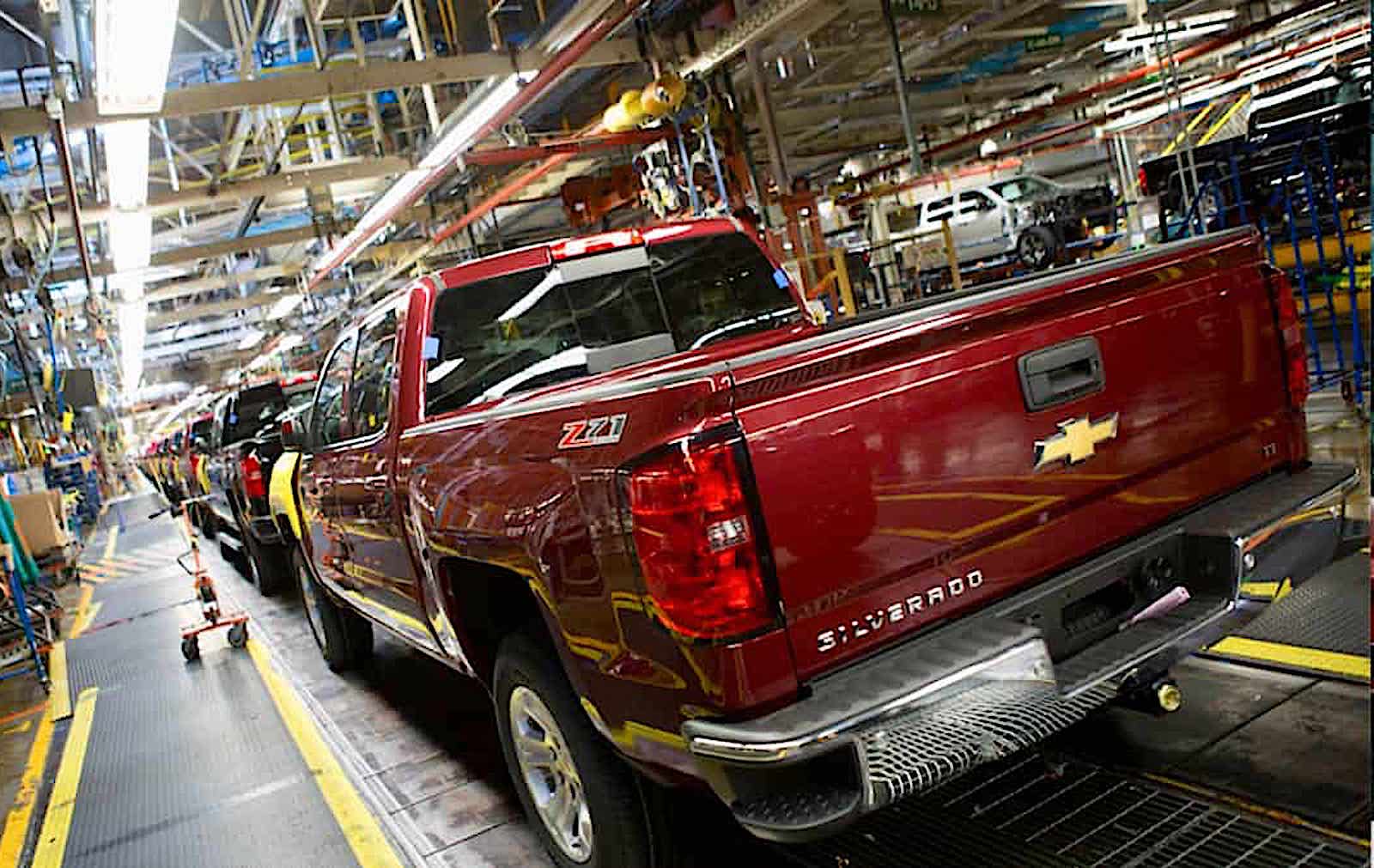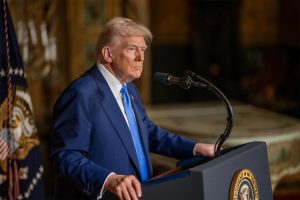In a surprise twist, Trump’s tariff war has so far left Mexican auto plants humming despite promises to blue-collar workers in the U.S. For now, at least, the USMCA trade agreement remains in force along the Southern border. But the tariffs have already had a negative impact on autoworkers Stellantis announcing layoffs at several of its plants.
Despite President Donald Trump’s expansion of tariffs on goods from across the globe, vehicles and automotive components made in Mexican factories will continue to cross the U.S. – Mexico border duty free under provisions of the existing U.S. Mexico Canadian trade agreement negotiated during the first Trump administration.
While Trump’s broad tariffs on all kinds, the decision not to touch Mexican-made products and produce including avocados and auto parts. That could change later this year following a review by the U.S. Department of Commerce but, for now, the U.S.-Canada-Mexico Agreement, known as the USMCA – sidesteps the heated rhetoric of Trump’s “Liberation Day” speech.
The impact of the tariffs is already being felt with Stellantis announcing layoffs at several of its North American facilities.
Mexican President said USMCA controls tariffs
Facing a packed press conference in Mexico City, Mexican President Claudia Sheinbaum said the free-trade agreement signed by Mexico, Canada and the U.S. signed during the Trump’s first term has shielded Mexico’s economy and its expanding auto industry from much of the direct fallout from the growing tariff war.
The exemption from higher tariffs also was something of a victory for lobbyists from the U.S., including domestic automakers like General Motors, as well foreign manufacturers such as Toyota, who have built extensive operations in Mexico over the past quarter century. All told, about three dozen nameplates are produced in Mexico and Canada for U.S. consumption.
Significantly Sheinbaum has avoided taking any victory laps as she pushes to maintain favorable relations with the Trump administration.
“During my last call with President Trump, I said that, in the case of reciprocal tariffs, my understanding was that there wouldn’t be tariffs (on Mexico), because Mexico doesn’t place tariffs on the United States,” said Sheinbaum, the U.S.-trained physicist who has succeeded in building rapport with Trump.
“There are no additional tariffs, not even for Canada,” according to President Claudia Sheinbaum. “And that is good for our country,” she said.
Change is coming for Mexico
Economy Secretary Marcelo Ebrard noted during the press conference many other countries were targeted by the Trump tariffs announced Wednesday despite agreements with the U.S. The Trump administration offered no explanation on why it decided to use the existing USMCA framework rather than impose stiffer tariffs on Mexican-made vehicles.
Ebrard said swaths of Mexican exports including agricultural products like avocados, clothing and electronics will continue to enter the U.S. without import duties.
Sheinbaum, according to the press accounts, encouraged companies producing in Mexico who had not been exporting under the free-trade agreement for various reasons to take the necessary steps to qualify. She cited major German auto producers, such as Audi, as an example.
While the Trump tariffs are expected to boost retail prices in the U.S. and boost inflation, the Trump administration did exempt Canadian lumber from new tariffs. Tariffs on steel and aluminum, essential building block for new vehicles, remain in place, however, putting upward pressure on car prices.
More Tariff News
- Trump Threatens to Punish Automakers Who Pass Tariff Costs Onto Customers
- Trump Announces Extensive New Tariff War – Auto Industry Could Be Hit Hard
- Ford, VW Reveal Plans to Deal with New Tariffs
Economic pain, frustration follows announcement
Canadian Prime Minister Mark Carney, on the other hand, used just 10 words to sum up his feelings about the Trump tariffs, which have prompted a major sell off in the U.S. stock market this week.
“They are all unjustified, unwarranted, and in our judgment, misguided,” Carney said.
The economic fallout from the tariffs and ensuing controversy has prompted Stellantis to lay off nearly 1,000 workers in the United States as it pauses production at assembly plants in Canada and Mexico, Stellantis confirmed. Those American workers were impacted because they depend on the back-and-forth shipment of vehicles and auto parts across the Canadian and Mexican borders.
“We will be temporarily pausing production at the Windsor (Canada) Assembly Plant for two weeks (the weeks of April 7 and 14) with operations resuming the week of April 21,” Stellantis said.
“We will be temporarily pausing production at the Toluca (Mexico) Assembly Plant for the month of April, beginning April 7,” the company added. “As a result of pausing production at several of Stellantis’ Canadian and Mexican plants, there will be temporary layoffs at the Warren Stamping and Sterling Stamping plants (Michigan) as well as the Indiana Transmission Plant, Kokomo Transmission Plant and Kokomo Casting Plant in Indiana,” Stellantis added.
Open trade rules still apply for Mexico
Dissatisfaction with the original NAFTA trade agreement, as well as the current USMCA pact has been a key element of Trump’s support among blue-collar workers. Trump even had invited Brian Pannebecker, a retired autoworker who headed “Autoworkers for Trump” during the 2024 Presidential campaign, to speak at his Liberation Day press conference.
Meanwhile, Shawn Fain, the outspoken President of the UAW, who supported Democrat Kamala Harris in 2024, also endorsed Trump’s tariffs, saying the tariffs would kill NAFTA. Both Fain and Pannebecker said auto jobs would return from Mexico under Trump’s tariffs.
However, opening up the Mexican economy to U.S. influence has been a key Republican goal since the Reagan administration and Newt Gingrich was once of key architects of the passage and implementation of NAFTA during the 1990s.





0 Comments